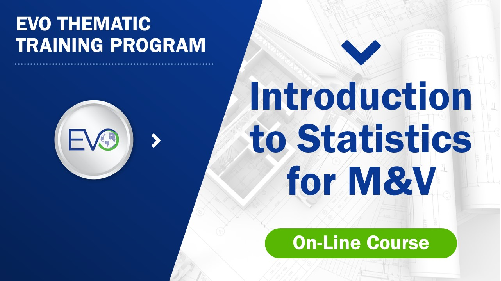Message from the Editor.
In many NGOs, plenty of individuals work behind the scenes but put their talent and skills at play to create tools to help others improve their work performance and share their insights and knowledge. He wrote many articles published in M&V Focus, participated in the design and review of our PMVA and PMVE programs, and inspired all of us with his dedicated participation in EVO’s training committee. His last contribution to our community was the translation of the IPMVP Core Concepts 2022 into Brazilian Portuguese. Agenor passed away earlier this year, and he is missed greatly in the many EVO committees he was active in, particularly the M&V Fundamentals Training Committee. Agenor lived a very unusual life, and his family shared a brief biography that we wish to share in return with our readers today.
Agenor Gomes Pinto Garcia - Social and Intellectual Path
(Content provided by Agenor's family)
Agenor Gomes Pinto Garcia was born on October 5, 1950, at the Hospital Santa Lucia in Botafogo in Rio de Janeiro. His mother was Aparecida Gomes Pinto Garcia, a pediatric pathologist, and his father was Afrânio Raul Garcia, a pediatrician. Agenor was the middle child, after the eldest Afrânio (1948) and the youngest Márcio (1960). He married Antônia dos Santos in Salvador da Bahia in 1976, and together they had three children: Gabriela (1976), Marcio (1978), and Luis Carlos (1980). To his great happiness, he also had five grandchildren: Henrique (2001), Liz (2009), Davi (2009), Raul (2016), and Luna (2017). He died on February 23, 2023, at the home of his youngest son, Luis Carlos, near Buraquinho Beach, in Lauro de Freitas, Bahia.
Agenor attended primary school at a public school in the then Federal District Rio de Janeiro. In 1961, he started secondary school. At the time, he got into the prestigious Colégio de Aplicação, a reference school for secondary education throughout Brazil, affiliated with the Universidade do Brasil (today, UFRJ). Because of his academic success, in his final year in high school, he was offered a scholarship at a top preparatory course for the university entrance examination. He decided to start a joint degree in Engineering and Mathematics at PUC-Rio, in 1969.
On May 1973, Brazil was under a tyrannic military dictatorship. It was a time when manifesting against the regime could lead to arrest, torture, and even death. Agenor had almost finished his bachelor’s degree in Mathematics, but was still taking classes at the Engineering School when a fellow student was arrested and tortured by agents of the government. Agenor and other peers were implicated as accomplices, and were obliged to flee without notice. For weeks, a DOI-CODI unit – from the secret service of the Army – stood in front of Agenor's home with heavily armed agents reminding his parents of the life risks they all faced.
After fleeing Rio, Agenor and two university colleagues, spent several months in different Brazilian states. Thanks to support of a branch of the Catholic Church, Agenor and his two friends traveled to Salvador, in Bahia. There, the Camaçari petrochemical complex was being set up, and therefore was recruiting labor from all over the country. Settling in Salvador, Bahia, in early 1975, Agenor stated volunteering at CEAS (Center for Studies and Social Action), a Jesuit NGO. There he met Antônia dos Santos, a staff member of CEAS. Their common interest in social justice quickly turned into mutual attraction and love, resulting in their marriage in 1976, and the birth of the first daughter, Gabriela.
Agenor seems to have suffered a lot at the beginning of his clandestine life, with successive displacements, aggravated by a six-meter fall from a pole that almost killed him. In Salvador, Agenor opens up the horizons of another existence, hardly imagined if we pay attention to the previous social journey, in which each partner of the new couple walked very different paths from those to which they were destined by their education and endowment of resources. No expressways for their lives well marked out; for both, the saying "the path is made by walking" is fully valid.
Antônia was the daughter of descendants of small black landowners from Belém de Cachoeiras, a small village in the Bahian Recôncavo, where the Jesuits were well established. His father Paulo, after building a reputation as a carpenter, and performing a number of related activities, became an oil worker with the exploration of oil wells and refining in the region, after the creation of PETROBRAS (1954) by the federal governement. The end of Antonia's childhood was marked by a great tragedy: her father and mother Julieta moved to the central city in the region - Santo Amaro - to consolidate their employment at the Ranulfo Alves refinery and to participate in the “festas juninas” (June religious festivities, very popular in the Northeast of Brazil).
Uncontrolled fireworks caused a terrible fire, killing more than 90 people and injuring many more. After months without exact news from her parents, Antonia learned that her father had died and her mother had survived, but her body showed the marks of deep burns. The challenge for ten-year-old Antonia became extremely greater. The return to Belém was marked by the approximation with Catholic groups, and she joined the Juventude Agraria Catolica (JAC) where she came to participate in the national Coordination, with involvement in regional and national events.
At this moment, she is selected for a nursing course and even develops midwifery activities in other municipalities in the region. She participates in the adult literacy work promoted by Catholics, but disagreements within the church lead to the end of receiving salaries for services rendered. At that time, she tried to find a job in Salvador, where she managed to get a job at the Santa Isabel hospital, which offered her a more complete nursing course. She manages to rent a place in Salvador where she starts to live with her mother and her brother Bililiu, a mason who got employed at the construction of the Bus Station and the Iguatemi Shopping Center.
At the same time, the Jesuit congregation, following guidelines valid throughout the world, created a new center for social apostolate at the local level, mobilizing already ordained priests, but still accepting the hiring of lay people even without religious convictions. Even for the Catholic clergy, facing the restrictions imposed by the military officers imposed the enlargement of allies for their actions. The priority was the relevance of the social work to be developed in the face of growing social problems and the recruitment of people committed to innovative actions. In 1974, Father Claudio Perani, director of the institution, invited Antônia to join the educational work of CEAS.
In the performance of her new functions, she is invited to meet the newly arrived « cariocas » to examine works to be developed together. Antonia collaborates in the installation of these arrivals in the Fazenda Grande neighborhood, where Agenor begins to participate in professional training courses for electricians. Their courtship began in April 1975, helping to ward off the dark clouds that plagued the young man's daily life. The wedding took place on January 3, 1976. Their daughter Gabriela, who consolidated the new directions in his personal life, was born on March 14. Agenor would thus put down strong and deep roots in Bahia, assume commitments for a lifetime and open up new horizons in his personal and social destiny.
After the wedding, they will live in a house built by them thanks to Bililiu in the neighborhood of Itacaranha, which extends the precarious habitat of the Avenida Suburbana (Suburban Avenue)[1] that begins with the large favela of Alagados next to the big city. In this house, two couples with small daughters coexisted, Jaques and his wife on one side (the two friends that had fled the dictatorship persecution with Agenor), Agenor and Antonia on the other. This domestic group did not work out, and Agenor and Antônia went to live in Piripiri, and later moved to a new house in Plataforma.
In this popular neighborhood on Avenida Suburbana, they would be linked to the pastoral work of priests focused on the professional training of new generations. Together with the ecclesiastical heritage of the chapel built in the 17th century, they contributed to organizing joint efforts and projects supported by international charitable entities at the origin of a new building for professional training courses. Such teaching, where Agenor transmitted knowledge for the job of electrician and Jaques for plumber, took place at night; during the day Antônia organized a group of women to provide childcare services for working mothers.
Based on this experience and, concerned with the expansion of essential services for the underprivileged population, an Association was founded - AMPLA - which in turn actively participated in the creation of many others gathered in a Federation - the FABS. Antônia dos Santos Garcia was one of the pioneers of this social movement and devoted much to building its power. A certain sexual division of social work has been present since the mid-1970s: men dedicated themselves to work in manufacturing and professional training and later to unionism for petrochemical workers, while Antônia and her companions were vectors of the strong expansion of residents' associations in Salvador and its periphery and its action for better living conditions and collective health.
We will see, however, that investments in politics and in professional and intellectual activities will make the couple even more unique: Antônia will exercise political activism with conviction, constancy and tenacity, in particular by linking herself to the mobilizations of residents' associations in Salvador and for the creation of the Partido dos Trabalhadores (PT), appearing as one of its founders in Bahia. Agenor will monitor union and political activities in the city and state, but will concentrate his efforts on a properly professional dimension. The sexual division of labor within the couple reversed the most common patterns: for women political activity and public debates; to man the seclusion of the house or office where he can deepen his studies and proposals in the field of energy saving.
At the end of the 1970’s, the military regime passes an amnesty law. Agenor is finally reunited with his estranged family in Rio de Janeiro and is able to get his credentials on mathematics and to finish his studies as an electrical engineer at the University of Bahia, later in 1989. He accomplishes this whilst continuing his employment at Camaçari and fathering three children. In 1984 he is promoted as head of electrical projects, and in 1992 becomes the electrical maintenance and instrumentation coordinator of a team with 40 technicians. In 1994 he is appointed as Electrical Maintenance Engineer at Cenam, a subsidiary of Camaçari. He executes a joint action plan with ECOLUZ in the area of energy efficiency and participates in studies of critical problems across various states in Brazil: Bahia, São Paulo, Rio de Janeiro, Espírito Santo, Pernambuco, and Pará.
In 1999, with the unexpected passing of his mother, Agenor and Antônia move to Rio de Janeiro to look after Agenor’s father, who had serious illnesses. They took the opportunity to engage in graduate studies. Agenor gets in one of the most prestigious graduate programs in all of Brazil: COPPE at the Federal University of Rio de Janeiro. He starts with a specialist program in energy efficiency from 1999 to 2001, then completes a master’s degree in 2003, writing a Thesis on the Energy Conservation Potential of Electric Motors in Industry. Finally, he commences a PhD at COPPE, and successfully defends his Dissertation on Energy Efficiency Auctions in Brazil in January 2008. His PhD Dissertation is subsequently published as a book (Leilão de eficiência energética no Brasil, Rio de Janeiro, SYNERGIA, 2009).
Agenor worked at the Energy Planning Enterprise (EPE, a state enterprise in charge of energy planning) from 2001 to 2006, participating in diagnostic studies of energy consumption in various sectors. This work involved relating energy consumption to significant variables within each sector. He then became an instructor for the Energia Brasil program for Micro, Small and Medium Enterprises in the Rio de Janeiro and Espírito Santo area, and then becomes deputy coordinator of the program.
Projects he engaged in included:
- The United Nations Department of Economic and Social Affairs Collaborative Labelling and Appliance Standards Program (CLASP)
- Evaluation of energy efficiency indexes for three phase electric motors.
His national expertise is recognized when he was invited, as a specialist in energy efficiency, on a mission to Europe (London, Paris, Brussels, Berlin and Lisbon) and the United States (Washington and San Francisco) to learn about mechanisms for promoting energy efficiency, with a view to formatting the PNEF (National Energy Efficiency Plan). Agenor then participates in the development of National Energy Plan.
In 2006 Agenor returned with Antônia to Bahia to support his children and Antônia’s family. He completed a post doctorate at the University of Bahia, focusing on potential energy efficiency projects in the Bahian petrochemical industry and support for the improved energy management in the administrative buildings of the state government. His extensive studies and research into energy efficiency made Agenor one of the most renowned specialists in the sector in Brazil.
In 2010 Agenor travelled to Santiago de Chile, obtaining the CMVP – Certified Measurement and Verification Professional. It is at this point that he began his engagement with EVO (Efficiency Evaluation Organization), and became an L3 trainer. Agenor delivered 32 L3 training courses in Brazil, Uruguay, Chile, Colombia and Mexico. He became an L4 instructor, and mentored four approved instructors, two each in Brazil and Mexico.
Agenor became active in EVO’s extended training committee in 2017. He made a very significant contribution to the work of this committee and to EVO. He developed a second example for use in the M&V (Measurement and Verification) Fundamentals training (L3) and contributed to the development of general knowledge questions. In addition to writing various articles for M&V publications, he also presented at webinars. Agenor also contributed to M&V, electrical engineering, and energy management training modules in specialization courses for EUREM-SP, EUREM-RJ, SENAI-GO, ETFPR.
For CTC experts he was an instructor in energy diagnostics and public project tenders. And he gave training on the PEE M&V guide for personnel from ANEEL. Agenor also delivered in-company M&V training for Eletropaulo, Celesc, CPFL, Energisa, Neoenergia, Light, Cemig, Ampla, GreenYellow.
Following his father´s steps, Agenor was a great professor. Teaching was clearly the professional activity that he enjoyed the most.
Agenor lived an unusual life. He always questioned himself about his way of life and line of thinking. He faced many unexpected challenges. However, he has faced all obstacles with great courage and determination, accompanied by a deep love for his companion Antônia. All of which has led him to numerous personal and professional victories. He contributed in the creation of new forms of collective action and new ways of thinking about the future. He never faltered, even in the face of relentless illness. He never spared his own energy to seek justice and solidarity on this “blue planet”.
![]()




